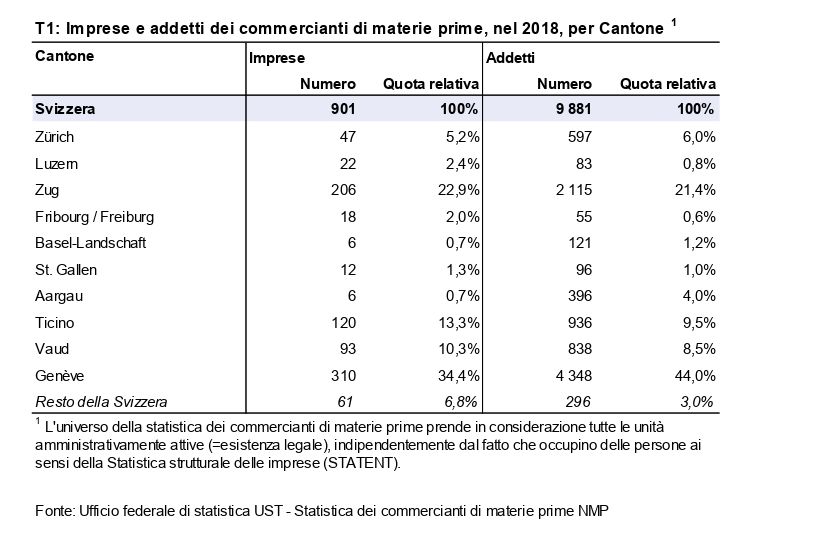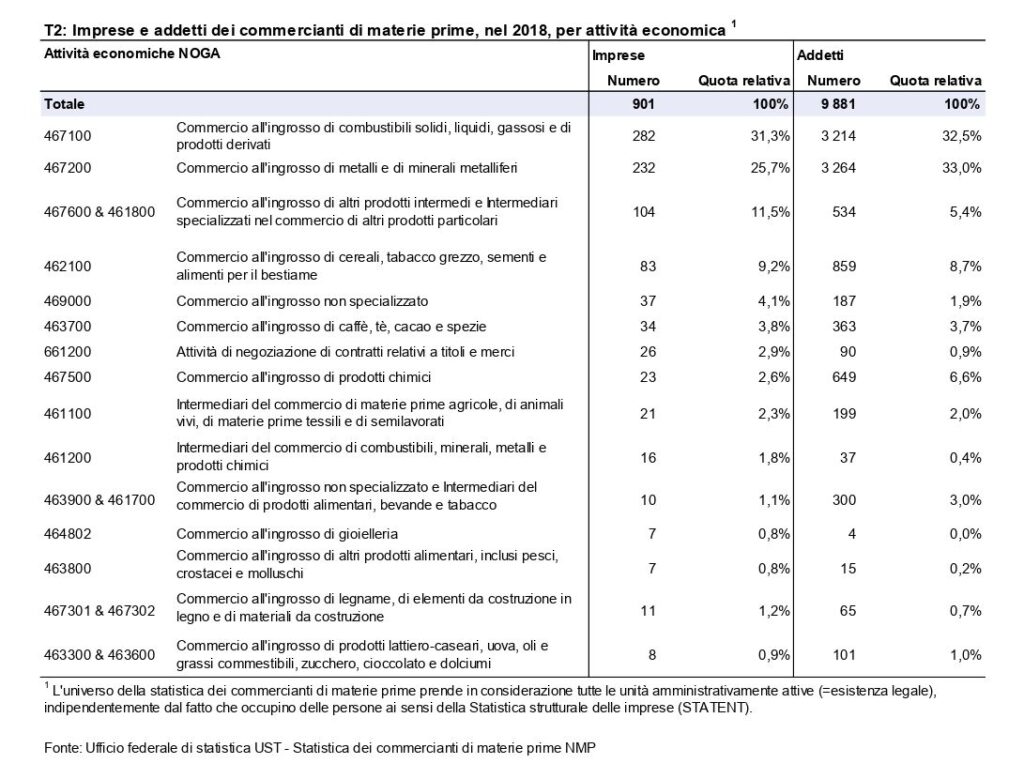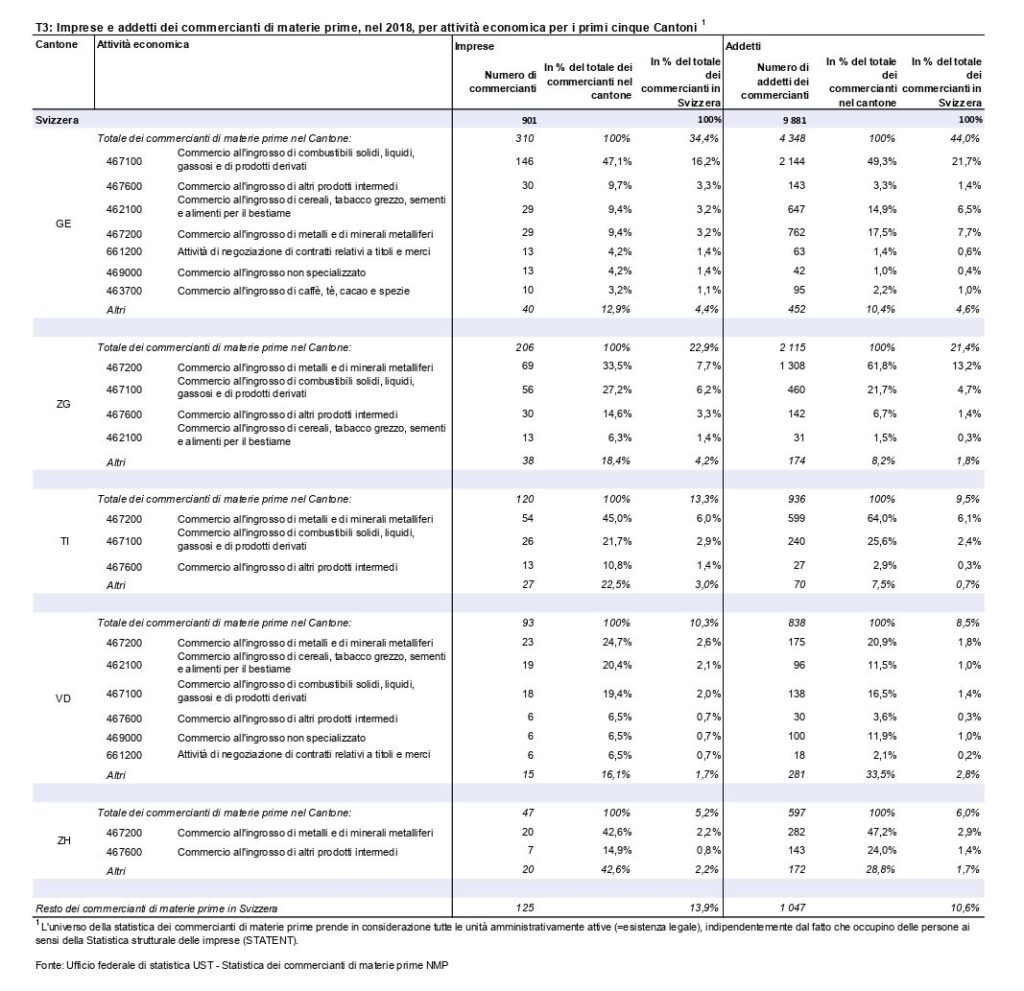900 commodity traders in Switzerland
Swiss import-export companies of materials underlying the invoice of other goods have 9,800 employees, primarily in the cantons of Geneva, Ticino and Zug
In 2018, Switzerland had about 900 commodity traders, employing about 9,800 people.
Related activities revolving around these players are, for example, certification, transport and financing.
A survey confirmed a first partial estimate of the number of jobs that have to do with these related activities, highlighting in particular the importance of financing activities.
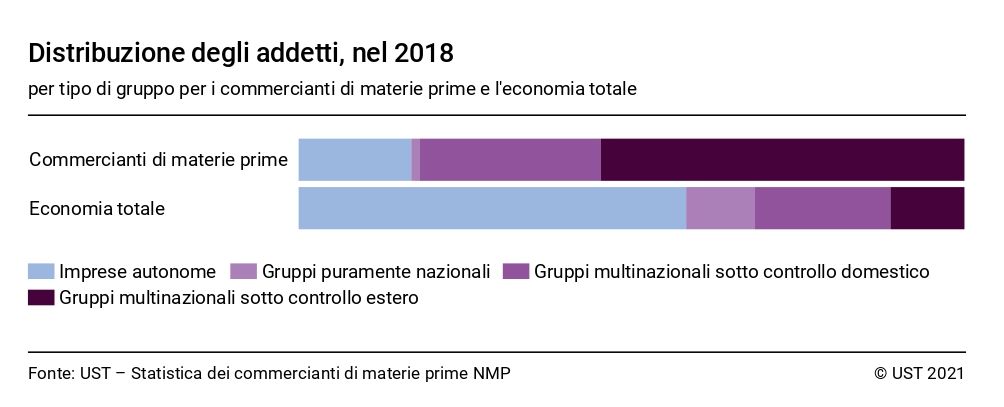
These are the first official figures for the commodities trading sector issued by the Federal Statistical Office (FSO) and the State Secretariat for Economic Affairs (SECO).
The commodities trading sector comprises the traders in the strict sense of the word (core) and the players who are essential to support these activities (clusters).
It is difficult to measure them statistically, since there is no reference nomenclature, either on a national or international scale. Moreover, actors’ strategy, business models, and value chains vary rapidly.
Therefore, the assessment of the core was made on the basis of consecutive filters and that of the part of the cluster which it was possible to estimate, was made on the basis of a specially drawn up list (see methodological box below). In the light of these premises, for the first time it is possible to provide structural information.
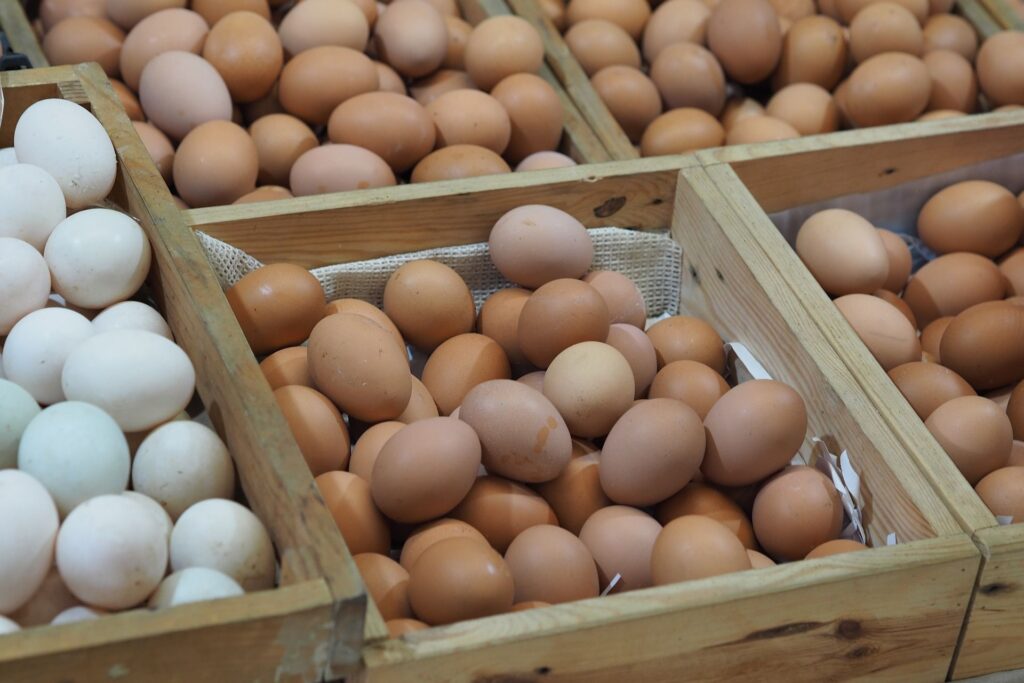
Three-quarters of jobs in Bellinzona, Geneva and Zug
In terms of core business, almost three quarters of the estimated 9,881 jobs are located in the cantons of Geneva (44 percent of the total), Zug (21.4 percent) and Ticino (9.5 percent).
Although at a distance from the former, the cantons of Vaud and Zurich also hold significant volumes of lending, with 8.5 and 6 percent of total lending in core businesses, respectively. These five cantons hold about 90 percent of core lending.
A group of experts will improve the Swiss tax place
Taxation, sixteen fields of action for the Switzerland of the future
Yes to consultation on Swiss tonnage tax
Traders are mainly active in the wholesale trade of fuels and minerals. However, the units, depending on the canton in which they are located, do not engage in the same activities. There are cantonal or regional hubs.
Traders in the canton of Geneva, for example, are mainly engaged in fuel trading, a branch that accounts for about 50% of total employment in this sector in the canton, while those in the canton of Zug are more focused on activities related to mineral and metal trading.
Ticino presents a similar profile to Zug. The commodities traded in the Canton of Vaud are more diversified. These cantonal particularities are linked to different business models and confirm the hypothesis that the core is heterogeneous.

Few large companies active in commodity trading
Core firms employ an average of 11 people, compared to 7.6 for the market economy as a whole. However, it is interesting to note that traders concentrate most of their employment within units with between 10 and 249 employees.
Compared to the economy as a whole, the sector employs fewer people in large companies (with 250 employees and more) and micro enterprises (1 to 9 employees).
This can be explained by the fact that in the other sectors there are many self-employed persons offering personal services. On the other hand, traders are seldom large enterprises, as it is not necessary to have many employees to trade large volumes of commodities.

Multinational presence is seven times more represented
One-third of the companies in the core are controlled by a group of companies, which is seven times more than in the economy as a whole (4.8 percent). In terms of employment, eight out of ten people work for a group of companies, compared with four out of ten in the economy as a whole.
Multinational companies, particularly foreign ones, play a dominant role in terms of jobs. In fact, more than half of all commodity traders’ jobs are tied to a foreign group of companies.

Superior dynamism of this occupation compared to the rest
The progression of employment between 2017 and 2018 is higher for businesses in the core than for those in the business location as a whole (2.8 versus 1.3 percent). This evolution is strongly influenced by the particular dynamism observed in the cantons of Zug and Ticino, where the progression of employment is significantly more pronounced among merchants than in the rest of the canton in question.

What are the major merchant support activities?
Merchant support activities include financing, auditing, consulting, certification, insurance, shipbroking, and transportation and logistics services.
Typically, firms providing these services have a wide range of clients in their portfolios, making it particularly difficult to measure the cluster and uses dedicated specifically to merchants.
Nidwalden will be the world’s best “tax haven” in 2025
Between what you give and what you receive is the residual tax burden
The income of Swiss households is high, but…
Financing appears to be the most significant support activity, with 1258 jobs specifically dedicated to trade.
This is followed by audit and consulting (570 jobs), transportation and logistics services (201 jobs) and inspection and certification (113 jobs). The results for these segments provide a clear overall picture.
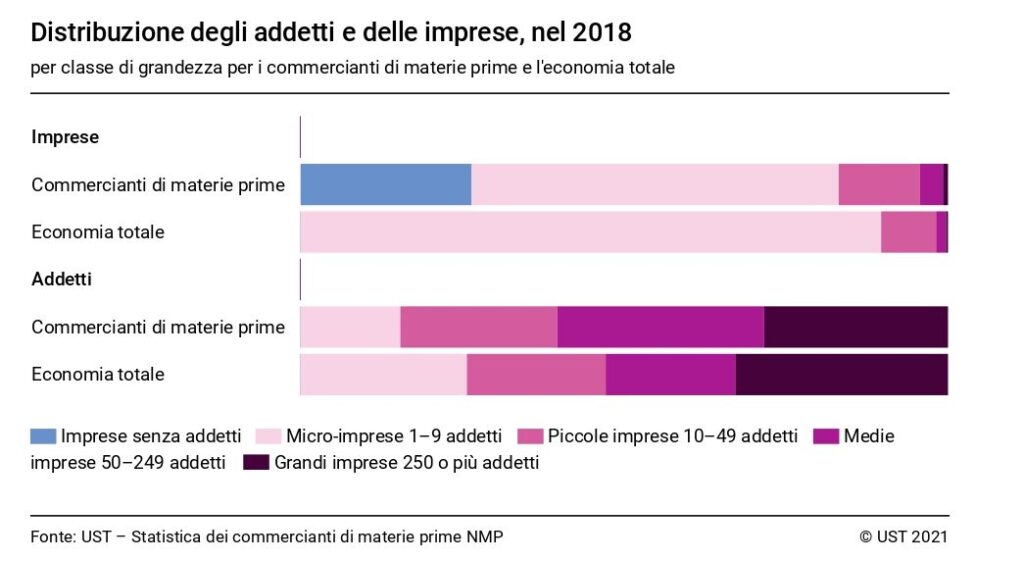
On the other hand, no data is available for the other branches that may fall within the cluster.
The uses indicated for support activities must, therefore, be considered as a very partial first estimate, capable, however, of highlighting how commerce generates considerable induced activity in other sectors.
